Taizō Fukami
Birth : 1901-01-22, Miyazaki Prefecture, Japan

A dangerous mobster threatens the life of a businessman's mother in this thriller. As Ryuji oversees the building of a bridge in Japan, a powerful gangster plans to stop the project. By any means necessary.
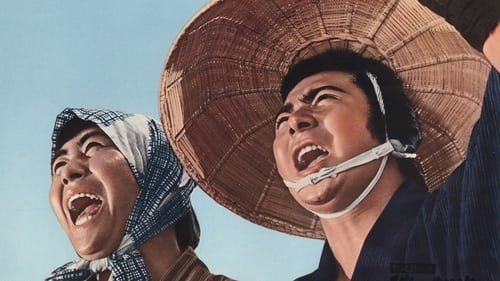
The second film in the "Suruga yukyoden" series, in which Shintaro Katsu plays Jirocho Shimizu. The film features Omasa, Komasa, Ocho, who will become Jirocho's wife, as well as other members of his future family. There is a particularly great swordfight near the end where Katsu and cronies attack the rival villainous yakuza clan to rescue their ailing, elderly boss. The action choreography, cinematography and editing of this sequence is quite brilliant, treading a difficult tightrope act between genuinely goofy antics and exhilirating, bloody violence.


Doctor
The Fencing Master tells the story of a man trying to survive as the only world he knows is becoming increasingly irrelevant. Danpei Ichikawa lives for swordfighting – he was once a renowned kabuki swordfight choreographer, and as the Chairman of the New National Theatre Company, he wants nothing more than to choreograph the swordfights for the modern plays put on by the company.

Japanese action film distributed by Taiho.

Yanagida
On his way to Tokyo one night, a truck driver picks up a country girl and has his way with her amidst a forest. A few days later he loses his job after a run-in with some punks, but is offered a job by a gangster impressed by his fighting skills. He tries to make amends with the girl he ravished, but becomes caught up in the ways of the underworld...

Yuzo Sada

An airplane loaded with 50 million yen for the reconstruction of Amami Oshima crashes en route from Kagoshima, Kyushu, but neither the money nor the remains of the pilot can be found.

Plans to build a touristic hot spring on the island of Izu Oshima run afoul of the Kobe yakuza group, which intends to use the island as a relay base for drug smuggling.

Yottsuan
Shortly after arriving in Kobe, "Jiro the Lefty", a killer with a natural talent, witnesses a man die in a crane accident which turns out to be a cover-up for a murder. Jiro soon finds himself on the run, tailed by a determined cop.

Motoyama Branch Manager
Shokichi, the owner of the clothing store, lives with his daughter Hideko and plans to open an art gallery. One day, Hideko led a handsome art student, Shohei and a poor painter, Sohei. Sohei’s painting was praised by a great printer at the completion ceremony of the art gallery. Since he became successful as a painter, but he looked quite indifferent. Around the same time, Shohei’s sister brought Sohei’s pictures to the gallery and Shokichi noticed that she was a daughter of his first love.

Taizo Nakayama
A bus making its precarious way across a winding mountain road picks up some unwelcome passengers.

Dr. Anzai
A biopic about Japanese baseball player, Tetsuharu Kawakami.

Yoshida
A conflict between two yakuza families in Tokyo, the Izus and the Yoshidas, has recently broken out. When an Izu underling starts a fight with a Yoshida man, Fuyu, the Izu family sends Tsuruta, a senior member of the clan, to make a personal apology to Fuyu. Tsuruta discovers that the woman he is in love with is Fuyu's sister, Tatsuko. Tsuruta ends up gambling with a swindler, who is in fact Tatsuko's husband. (The general plot of the film was re-used for Seijun Suzuki's Kanto Wanderer).

Father
Two brothers compete for the amorous favors of a young woman during a seaside summer of gambling, boating, and drinking.

Ippei, a bored private detective hears from his assistant Hideko an interesting story that General Semyonov who has been exiled to Japan buried his gold bullion somewhere.

A battle for a large sum of money unfolds on the docks near a steel mill in a foggy atmosphere. Manzo, an engineer on the verge of retirement, witnesses two men shooting each other and collapsing on the quay while his assistant Shinsuke is away.

Private Detective Ippei Shizuno faces off against a serial killer and a wealthy woman's society who runs an illegal gun trade.
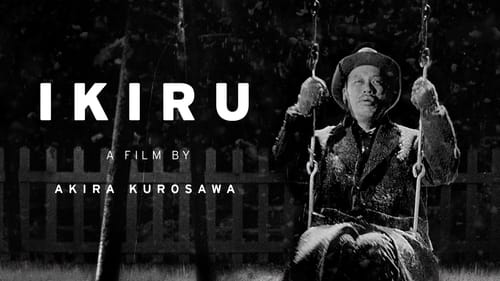
Baseball Spectator
Kanji Watanabe is a middle-aged man who has worked in the same monotonous bureaucratic position for decades. Learning he has cancer, he starts to look for the meaning of his life.

Five women classmates from a college in Tokyo are on the first stretch of a walking tour when one of them, Masako, falls ill at a railway station. Osen, a middle-aged maid from a nearby inn, takes her in and nurses her, assisted by Dr. Minami, a young physician who diagnoses her illness as a mild case of pneumonia. With Masako in good hands and needing a few days to recuperate, her classmates continue their tour. Masako’s recovery, however, is hampered by her spoiled and immature nature and her determination to punish the world for the loss of her mother.
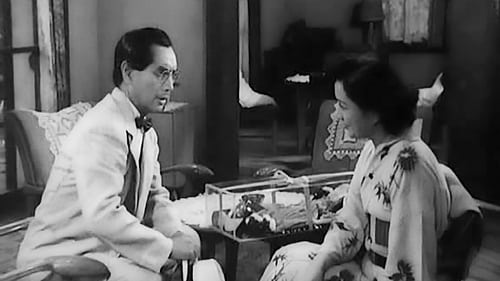
Set in post-war Japan, The Lady of Musashino tells the story of Michiko, a disillusioned young woman trapped in a loveless marriage. She confides in her younger cousin, Tsutomo, and the two become close, but decide not to consummate their affair. He instead becomes involved with the flirtatious Tomiko, who is also conducting an affair with Michiko's husband. When Michiko finds that her husband has abandoned her, she decides to take her fate into her own hands.
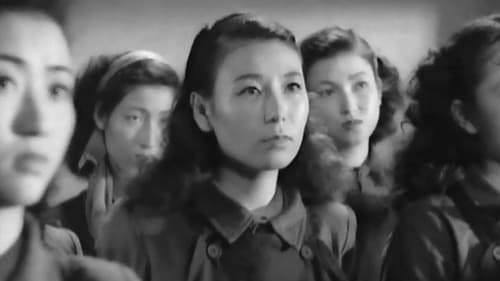
The critical establishment was clearly not prepared to accept a woman's prison film featuring former prostitutes recovering from venereal diseases, unwanted pregnancies, and estranged lovers. With its cat fights, hysterical tantrums, film noir lighting, and dramatic music, White Beast is indicative of the new influences of the Hollywood psychological thriller on Naruse. Caged (John Cromwell, 1950) initiated a cycle of women's prison movies in the United States that may or may not have been shown in Japan, but the stylistics of White Beast draw on the same paranoid woman's films and film noir conventions that preceded the American cycle.

An attempt is made to suppress a journalist's investigation of collusion between a rural police chief and the local gangster bosses.
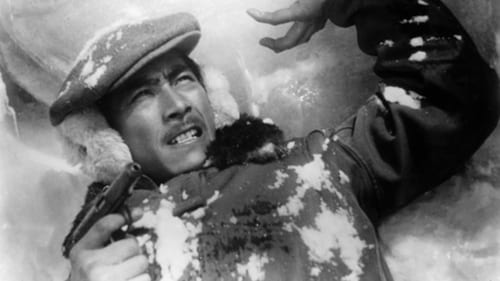
Chief Detective
Three bank robbers, Eijima, Nojiri, and Takasugi, flee the police and escape into the mountains. At an inn high in the Japanese Alps, Eijima and Nojiri encounter a young woman and her father, as well as Honda, a mountaineer. The inn folk do not realize their guests are wanted criminals and the visitors are treated with great kindness. Honda volunteers to lead them over the mountains, but Eijima's paranoia endangers all of them as they make the perilous trip.

1947 Toho film directed by Tadashi Imai
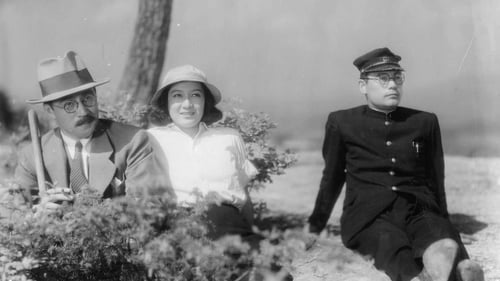
Minister of Education
Yukie, the well-bred daughter of a university professor, is shocked when her father is relieved of his post for his political teachings during a purge of anti-militarism in pre-war Kyoto. Years go by as she is courted by two of her father's former students; one a fiery leftist, the other more moderate and equable.

In A Tale of Archery, young, timid bowmaster Kazuma (Akitake Kôno) seeks to beat the archery record set by Hoshino Kanzaemon, a mysterious figure who, it is rumored, drove the previous champion (Kazuma’s father) to suicide. Possessed of much raw talent, Kazuma is also very much a coward, holing himself up in an inn run by the kindly Okinu (Kinuyo Tanaka) and generally avoiding confrontation of any sort. Despite his clandestine manner, enough of the locals know of Kazuma’s purpose and an attempt is made on his life. He is saved by Karatsu Kanbei (Kazuo Hasegawa), a samurai who offers to help Kazuma hone his archery skills, though it soon becomes clear that this apparently selfless stranger has several potentially shady ulterior motives.

The premature death of a young mother serves as inspiration for her husband and son.

A bizarre murder at a hot springs resort threatens to disrupt an Edo detective's (Hasegawa) vacation. When his hot-blooded wife (Yamada) starts snooping around, however, he finds himself reluctantly drawn in to the case.

Kimura
What is marriage? Young couple in match-making wanted to know before they decide. They visited married couples of sisters and brothers. Love comedy in 1942.

Gorô Imasato
This epic depicts the battle between Uesugi Kenshin and Takeda Shingen. The focus of the story is the struggle by the unit leader in charge of the main supply wagons and the supply troops to transport materiel to the Uesugi army. To this are added episodes involving an itinerant woman.
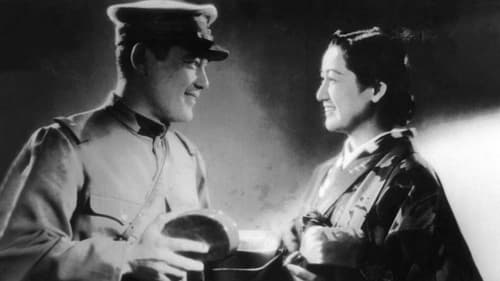
In this semi-documentary, an older locomotive driver is tasked with training younger ones and is currently training two in particular. The old man is finding the task overwhelming as it is hard work with practical lessons and classroom components. His wife has died, but he has three daughters with the oldest taking care of her younger siblings.

Doi Ooi-no-kami Toshikatsu
A sentimental tale of the filial love between shogun Iemitsu (matinee idol Hasegawa) and his loyal old retainer Hikoza (comedian Roppa, playing somewhat against type).

Schoolteacher
A Fond Face from the Past is also set in a rural community, specifically a village outside Kameoka, near Kyoto. In some ways this short, thirty-six-minute film is Naruse's most moving negotiation of the militarist restrictions of the time, perhaps because it is also his most direct engagement with the culture of war. When a newsreel comes to Kameoka featuring a local man named Yoichi, it causes some excitement in the community and, of course, in Yoichi's own family. First of all his mother makes the newsreel (Nippon News, no. 14), which begins with the same marching music that opens his own film, followed by a curious baby judging context in Los Angeles featuring two hundred Japanese babies. Released in January 1941, almost a year before the pacific war begins, this “found footage” is indicative of Japanese imperialist ambitions beyond Asia long before Pearl Harbor.

Hokushin
This film depicts a troupe of wandering kabuki players traveling through rural Japan.

Enoken no wanwan taishô AKA Wanwan Taisho AKA Bowwow General directed by Nobuo Nakagawa

The film was produced during Second Sino-Japanese War, before the Pearl Harbor Attack in 1941. The film mainly concerns the training of newly-recruited pilots and their daily life, then their subsequent fighting experiences in China. Army supported the production, providing all the authentic airplanes, training and actual actions. They even provided the older biplanes disguised as Chinese fighter planes. Obinata plays the trainer-turned-combat-leader, who is passionate and cool at the same time. All his boys love him, of course. The film is not as intense, full of sugar-coated camaraderie, until young pilots are killed in action one by one. Last twenty minutes are fairly grim, as the message of self-sacrifice is heard loud and clear.

Mr. Sokotani
Hideko, a young Baseball fan, determined to cheer for her favourite baseball team by creating a new song for them.

Japanese film based on the life of writer Ichiyo Higuchi (1872-1896).

Japanese war movie

Sukesaburo Sasaki
This is the only surviving “Mito Komon Manyu-ki” film. This release also known as "Adrift Tour Memoir" or literally "Mito Komon's Pleasure Trip" is an 80-minute compilation of the first (東海道の巻 or "Tokaido no maki") and second (日本晴れの巻 or "Japan's Fine Weather Reel") parts (147 minutes), which were re-edited and screened at a time when presentable films were dried up immediately after the defeat of the war.

Japanese movie

A man attacks the shogun, but does not succeed in his assassination attempt. He flees to the mountains and hides in a shed. There he finds an old man and a girl. The latter is the daughter of Shogun's former wife and also has revenge on her mind. The former is also connected to the castle. Separately a girl lives at the shogun's castle and believes in god.

Japanese film.

Set in a rural area of Shinshu, a drama in which a woman who graduated from a women's college in Tokyo with her brother's efforts opens up a new life in her hometown where she is tired of the city. The original is a stage play by Yobun Kaneko. Directed and written by Mansaku Itami.
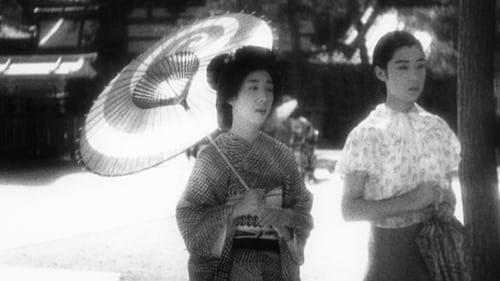
Kimura
Umekichi, a geisha in the Gion district of Kyoto, feels obliged to help her lover Furusawa when he asks to stay with her after becoming bankrupt and leaving his wife. However her younger sister Omocha tells her she is wasting her time and money on a loser. She thinks that they should both find wealthy patrons to support them. Omocha therefore tries various schemes to get rid of Furusawa, and set themselves up with better patrons.

































